Why B2B Sales Require a Different Strategy
B2B sales go beyond hitting targets; they demand strategic precision and refined skill. At Dynamo Selling, it is understood that B2B buyers are driven by logic, long-term value, and strategic alignment. B2B transactions, unlike those in the B2C space, require engagement with multiple stakeholders, extended decision-making timelines, and customized solutions. That’s why effective B2B sales require a methodical, insight-driven approach that focuses on credibility, data, and trust-building.
Key Takeaways
- B2B selling involves engaging multiple decision-makers strategically.
- Customized communication and ROI-driven messaging outperform emotional selling.
- Lengthy sales cycles require persistence, clarity, and strategic alignment.
- A blend of interpersonal skills and digital tools enhances success in B2B environments.
- Long-lasting performance is fueled by ongoing negotiating and emotional intelligence training.
Understanding the B2B Sales Landscape
In B2B settings, the buyer is an entire organization rather than an individual consumer. This shift changes everything from the messaging and pitch to the delivery and follow-up. Decision-making is rarely impulsive. Instead, it’s backed by internal meetings, cross-department consultations, and budget approvals. Nearly 80% of B2B buyers now prefer remote interactions and digital self-service, amplifying the importance of trust, clarity, and tailored communication.
Key Differentiators in B2B Sales
1. Long Buying Cycles
Before a decision is made, B2B sales processes sometimes take weeks or even months. In contrast to impulsive consumer purchases, B2B stakeholders consider:
- Return on investment (ROI): Financial viability is assessed to ensure long-term value.
- Industry track record: Proven success in similar markets or sectors builds trust.
- Technical specifications: Compatibility with existing infrastructure is carefully reviewed.
- Post-sale support: Ongoing service, maintenance, and training availability are often decisive factors.
Navigating these extended timelines requires a deliberate approach. Patience, consistent follow-ups, and providing relevant insights at each touchpoint are key to sustaining buyer interest without exerting undue pressure.
2. Multi-Layered Decision Making
- In B2C settings, purchasing decisions are generally made by an individual consumer. In contrast, B2B sales involve a group of stakeholders, including procurement professionals, technical experts, finance teams, and department leaders. Each individual brings unique concerns and expectations to the decision-making process.
- Successful selling in this context means crafting messaging that resonates with various roles and pain points. The ability to engage and align multiple decision-makers is a critical competitive advantage.
3. Value Over Emotion
While emotional appeal may influence B2C transactions, B2B decisions are grounded in facts, performance metrics, and long-term outcomes. Buyers typically prioritize:
- Verified outcomes: Information and case studies proving observable success.
- Risk mitigation: A clear understanding of how potential risks will be managed.
- System integration: Seamless compatibility with existing tools or processes.
Effective B2B communication presents value through logic and evidence. Offering clear business cases and supporting material builds confidence and justifies investment. Insights from respected business sources can further validate proposals and support decision-making.
4. Custom Solutions, Not General Offers
B2B purchasers look for customized solutions that deal with specific issues. Generic offers or scripted presentations rarely meet expectations. Sales strategies that succeed in this space emphasize:
- Discovery of specific business needs: Asking the right questions to uncover operational pain points.
- Customized demonstrations and presentations: Delivering relevant, focused solutions rather than standard product overviews.
- Industry-aligned language and context: Demonstrating an understanding of sector-specific trends and terminology.
Recent studies reveal that 77% of B2B buyers believe sales professionals fail to grasp buyer-specific needs, highlighting the critical importance of personalized engagement.
5. Role of Training in Shaping B2B Success
- Sales professionals who excel in B2B environments are more than just persuasive speakers. Acting as consultants and problem-solvers is essential. To perform effectively in this role, continuous upskilling is necessary.
- Core competencies such as emotional intelligence, consultative communication, and compelling presentation skills allow professionals to navigate objections, engage diverse audiences, and lead complex conversations.
- Additionally, building strong negotiation capabilities is vital. Interactions with senior executives or procurement departments often require well-reasoned arguments, financial awareness, and the ability to manage conflict or hesitation diplomatically. Such training enhances confidence and credibility, leading to stronger business outcomes.
Tech and Data: The Modern B2B Toolkit
Modern B2B selling is increasingly powered by digital systems that complement human interaction. Sales professionals now depend on platforms and tools such as:
- LinkedIn Sales Navigator: One useful tool for reaching out to potential customers and identifying decision-makers in target companies is LinkedIn Sales Navigator.
- CRM solutions (e.g., Salesforce, HubSpot): To track interactions, manage pipelines, and automate workflows.
- Data analytics dashboards: To monitor buyer behavior, forecast trends, and assess lead quality.
Combining human intuition with technology-driven insights allows for smarter segmentation, more personalized outreach, and improved lead prioritization. Leveraging intent data behavioral signals that indicate readiness to buy can significantly boost conversion rates, with some businesses reporting improvements of up to 30%.
The Impact of B2B Sales Training
- Structured training programs have a measurable impact on sales performance, particularly in demanding B2B environments. Effective coaching does more than teach closing techniques; it refines communication style, sharpens strategic thinking, and fosters resilience.
- In highly competitive industries with extended sales cycles, maintaining motivation, flexibility, and a strong client focus is essential for success. Training that builds mental agility, supports goal-setting, and encourages collaborative selling frameworks ensures that professionals are better prepared to manage complex negotiations and long-term partnerships.
- When applied consistently, high-quality training empowers professionals to evolve with market demands, connect with prospects meaningfully, and sustain business relationships built on trust and value.
Conclusion
B2B sales aren’t built on quick wins; success is forged through strategy, empathy, and structured planning. At Dynamo Selling, the focus is on empowering professionals with the tools and techniques that drive long-term business success. Whether it’s enhancing soft skills or mastering corporate sales frameworks, tailored training programs open the door to sustainable performance. Get in touch with us to transform B2B potential into measurable growth.
FAQs
What is the biggest difference between B2B and B2C sales?
Longer sales cycles, several decision-makers, and an emphasis on return on investment are common features of business-to-business (B2B) sales. B2C sales, on the other hand, are frequently faster and more driven by instinct and individual feelings.
Why is relationship-building important in B2B sales?
Because decisions are made over time and require internal alignment, building trust through consistent communication and long-term engagement is essential for successful outcomes.
What skills are most important in B2B selling?
Essential skills include active listening, strategic thinking, empathy, effective presentation delivery, and the ability to customize solutions based on specific business challenges.
Does sales training help in B2B environments?
Yes. Structured training programs can strengthen confidence, improve communication, and enhance the ability to navigate complex negotiations and stakeholder relationships.
What tools are used in modern B2B sales?
Common tools include customer relationship management (CRM) systems, sales engagement platforms, analytics dashboards, and professional networking channels such as LinkedIn.





